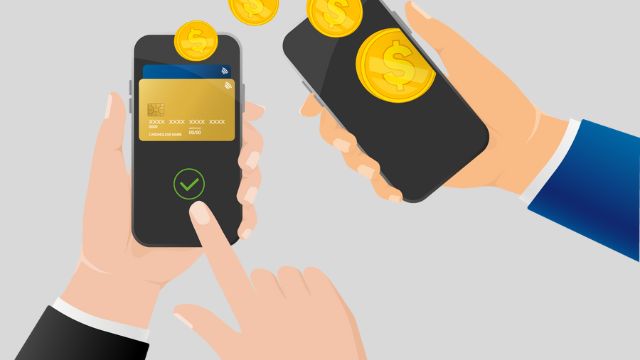Payment Gateway Advantages and Disadvantages
An example of a networking device is a gateway, which joins two devices from various networks so they may communicate. It serves as the entrance to another network. Payment gateways are becoming an essential component of the online payment ecosystem in the modern digital age.
These reliable and effective methods enable smooth transactions, making it simple for both companies and customers to send and receive money. Payment gateways nevertheless have their pros and limitations, just like any other technology. We will examine the distinct advantages and potential disadvantages of employing payment gateways in this post, illuminating their crucial position in the changing face of contemporary business.
What are Payment Gateways?

A payment gateway, also referred to as an online payment processor, is a piece of software that permits money transfers from a customer’s card to the retailer’s payment processor. Among the customer and the merchant’s bank account, it serves as a middleman. Payment gateways do more than just approve payments; they also look for fraud. Amazon Pay, Skrill, PayPal, Visa, Cybersource, Braintree, Nochex, and other payment gateways are examples.
Advantages of Payment Gateways
Enhanced Security
Payment gateways’ strong security features are one of their main advantages. To protect sensitive consumer data, including credit card numbers and personal information, they use encryption and tokenization techniques. By fostering trust between companies and their clients, this level of protection lowers the possibility of fraud and data breaches.
Various payment platforms
Customers can select from a wide range of payment platforms when making purchases online. Offering all of the well-known payment channels will boost the likelihood that clients will purchase from you.
Payment gateways also offer the following benefits:
- Simple and quick setup
- Simple to control
- There are many channels for dissemination.
- Possibility of setting up recurring payments
- Excellent client service
Global Reach
Businesses can take payments from customers all across the world thanks to payment gateways. They accommodate the varied needs of international customers by supporting a variety of currencies and payment options. This worldwide reach expands the client base for firms and creates fresh market opportunities, encouraging growth and competition.
Seamless Integration
The majority of payment gateways provide easy connections with websites and programs. Businesses can quickly use the payment gateway thanks to its simplicity of integration and lack of substantial technological challenges. Customers may easily finish transactions thanks to the quick setup, which boosts conversion rates and increases customer satisfaction.
Faster Transactions
Payment processing delays might occur when using traditional payment methods like cheques and bank transfers since they take time to complete. On the other side, payment gateways enable real-time transactions, enabling rapid and effective payment processing. Customers and businesses both profit from this expediency’s shorter wait times and quicker cash flow.
Enhanced Customer Experience
Customers benefit from a simple and intuitive payment process provided by payment gateways. To accommodate various consumer preferences, they provide a variety of payment alternatives, including credit cards, digital wallets, debit cards, and more. This ease of use improves the whole customer experience and promotes loyalty.
Disadvantages of Payment Gateways
Transaction Fees
Payment gateways provide useful services, but they also charge a fee for each transaction that is performed. Depending on the payment method and the gateway provider, these costs may change. These costs can add up and affect overall profit margins for companies with significant transaction volumes.
Dependency on Internet Connectivity
The proper operation of payment gateways depends on internet access. Processing payments could be difficult in areas with erratic or sluggish internet connections. Businesses operating in remote locations or experiencing sporadic internet outages may find this dependency to be a serious worry.
Technical Glitches
Payment gateways are susceptible to outages and technical issues, just like the majority of technologically dependent applications. Any tech maintenance that needs to be performed, which typically happens at night, is always announced by the gateways, but it can occasionally happen without notice. These problems may hurt customers’ purchasing experiences and, consequently, the company.
Potential Downtime
Payment gateways are built to be dependable, yet they are nevertheless susceptible to malfunctions and maintenance downtime. Businesses may experience issues processing payments throughout system outages or planned maintenance, which could result in unhappy customers and missed sales.
Hidden Charges
While certain payment gateways charge implementation fees, others charge client processing fees. Additionally, using online payment gateways necessitates having an internet connection, which incurs additional fees for both users and retailers.
Disputations and Chargebacks
Businesses may experience chargebacks in situations involving disputed transactions from customers or fraudulent ones. Chargebacks can cause merchants to incur additional costs and administrative burdens. Dispute resolution can be time-consuming and take resources away from important corporate operations.
Security Concerns
Payment gateways are still susceptible to online threats and hacking attempts despite strict security measures. A security breach could jeopardize confidential customer information, damage a company’s brand, and result in legal repercussions.
Conclusion
Payment gateways have several benefits that let businesses accept payments online safely, quickly, and internationally. They do have certain drawbacks, though, such as transaction costs, potential downtime, and security issues, which call for careful thought and effective risk management. Businesses may select the best payment gateway for their specific requirements by understanding both the benefits and drawbacks and achieving a balance between security, ease, and cost-effectiveness.



